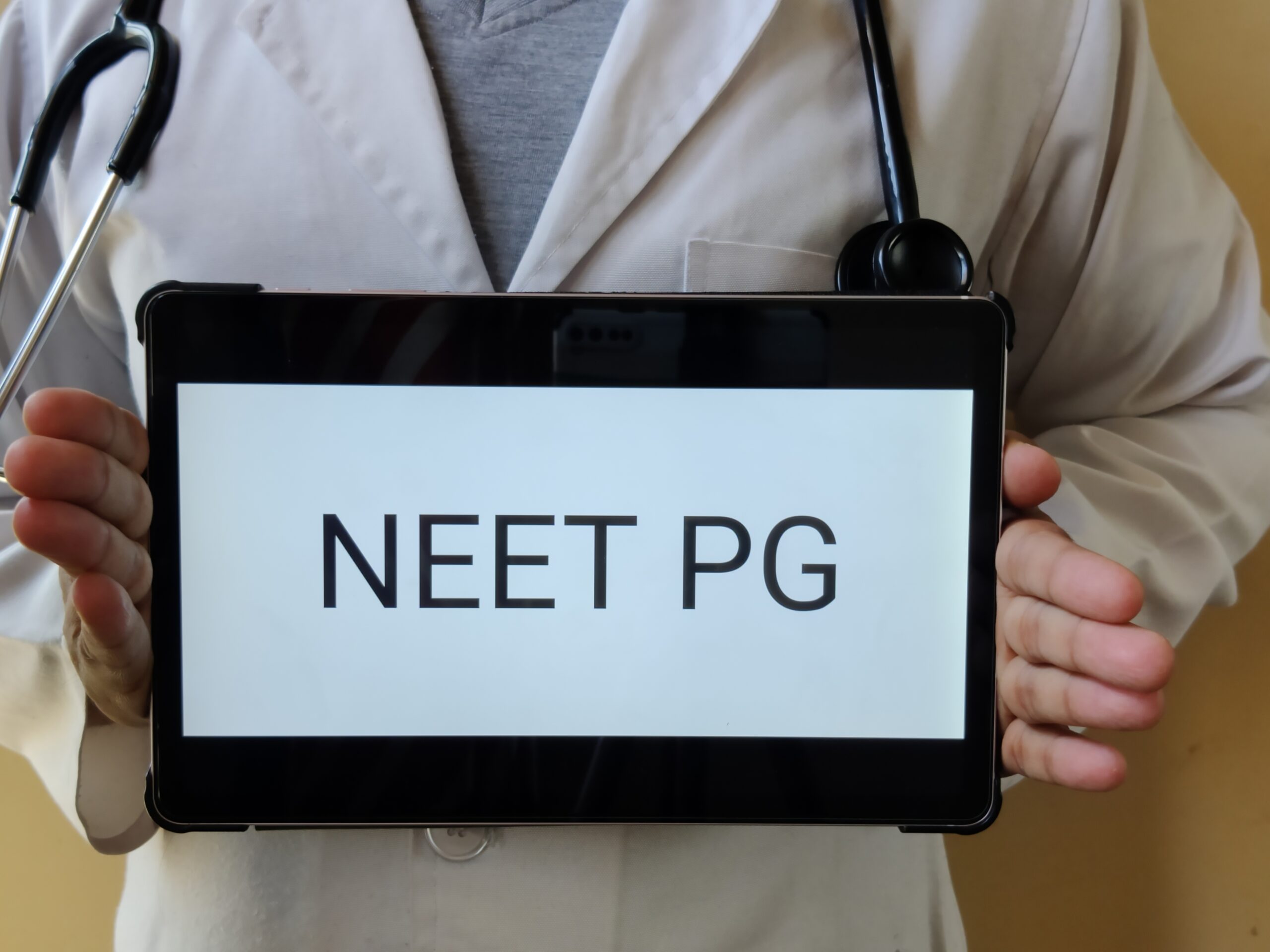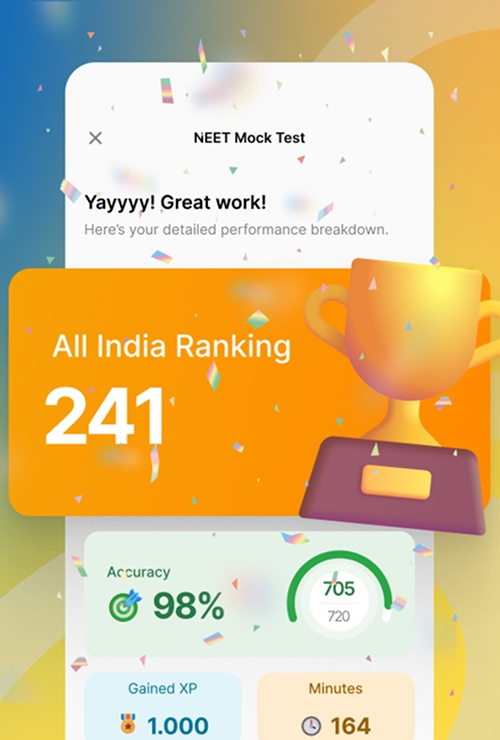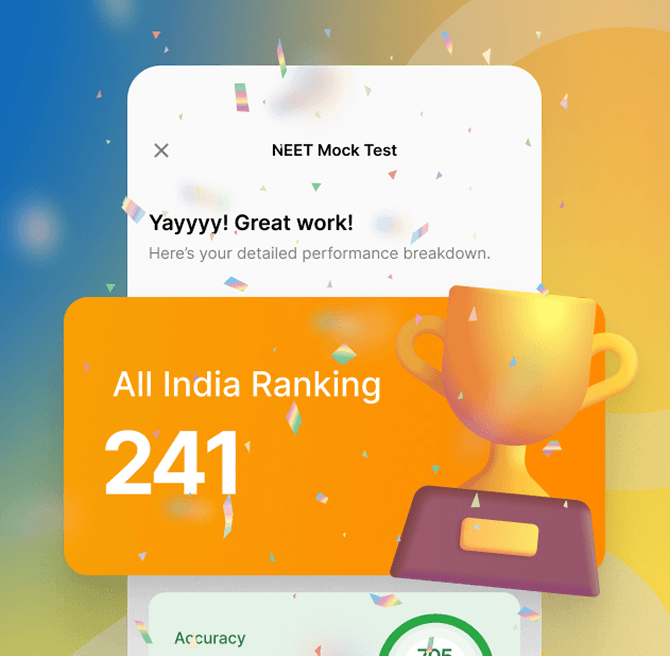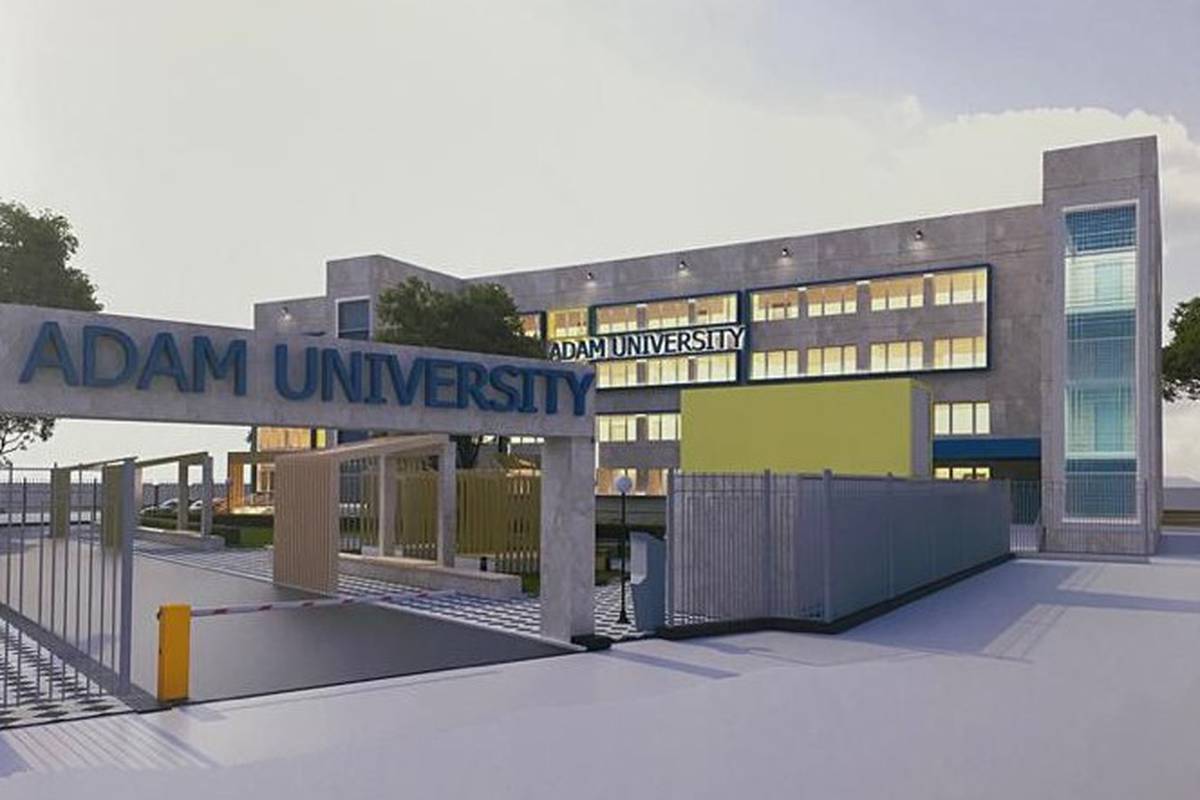
☝️ At a glance
- Top PG courses after MBBS: Popular options include MD, MS, DNB, and diplomas in specialties like Pediatrics, Surgery, and Psychiatry.
- Specialization pathways: MBBS graduates need to clear NEET PG or NExT to pursue postgrad studies in India.
- Alternative careers post-MBBS: Explore roles in medical research, healthcare management, or teaching, or consider entrepreneurship and medical journalism.
- Top colleges: IIMs, FMS, and IITs offer excellent options for MBA programs, blending business with healthcare expertise.
What comes after MBBS?
After completing your MBBS degree, you can explore various career options, job opportunities, and advanced courses for further specialization. Popular courses include MD (Doctor of Medicine), Masters in Hospital Administration, MS in Clinical Pathology, Masters in Public Health, MTech in Biomedical Engineering, and diploma courses in areas like Sports Medicine, Pediatrics, Psychology, and Occupational Health.
Alternative career paths post-MBBS include teaching, clinical forensics, medical research, and academic medicine. This blog highlights both short-term and MS degree courses, along with top career options in the field of medicine.
Route to pursue specialization after MBBS
NEET PG overview

According to Section 10 (D) of the Indian Medical Council Act of 2016, NEET PG is the sole eligibility and entrance examination for MD/MS, PG Diploma, and DNB CET courses. NEET PG is a computer-based entrance exam for admission to MD/MS and PG diploma programs across various government, private, deemed, central, ESIC, and AFMS medical institutions in India.
Recently, the National Medical Commission (NMC) introduced the NExT (National Exit Test) to replace NEET PG and FMGE (Foreign Medical Graduate Examination). The NExT exam is now mandatory for both Indian and foreign medical graduates, consolidating multiple existing postgraduate entrance exams.
NExT 2025 exam dates
As of now, the National Medical Commission has not officially announced the dates for the NExT 2025 exam. The NExT 2025 PG Step 1 exam is anticipated to take place in August 2025, with Step 2 expected in February 2026.
Earlier reports indicated that the National Exit Test was initially planned for 2019 MBBS graduates but was postponed. The latest updates confirm that the NExT 2025 will be applicable to the 2020 MBBS batch. For postgraduate studies abroad, students will need to take a country-specific examination relevant to their chosen destination.
NExT exam eligibility criteria:
The eligibility criteria for the NExT exam are outlined as follows:
Students enrolled in MBBS programs at medical institutes approved by the NMC qualify for the National Exit Exam.
MBBS graduates from foreign medical universities, affiliated by the NMC, must take the NExT exam to obtain a license for commencing their medical practice in India.
The National Exit Test for MBBS consists of two papers – NExT Paper-1 and NExT Paper-2.
NExT Paper-1 is a substitute for the final year MBBS exams.
After successfully clearing Paper-1, students must complete a mandatory 12-month clinical internship to be eligible for NExT Paper-2. Successful completion of the NExT-2 exam is a prerequisite for candidates to choose between pursuing a postgraduate (PG) degree in medical education or practicing medicine in India.
The validity of NExT Paper-1 is two years.
For postgraduate studies abroad, students will need to take a country-specific examination corresponding to the nation where they intend to pursue their postgraduate course in the medical field.
Click here to download the NEET Zoology chapter-wise weightage
Download PDFSome of the entrance exams are given below:
Exam conducting body
Exam | Conducting body |
IMAT (International Medical Admissions Test) | Italian Ministry of Education, Universities and Research (MIUR) |
MCAT (Medical College Admission Test) | The Association of American Medical Colleges |
OMET (Overseas Medical Entrance Test) | Cambridge Boxhill Language Assessment Trust (CBLA) |
USMLE (United States Medical Licensing Examination) | Federation of State Medical Boards of the United States |
Options of PG courses after MBBS
Curious about what to do after MBBS? Explore the top MD, MBA, diploma, and alternative courses available for you:
There are several postgraduate programs available for medical graduates. The most common postgraduate medical degrees are Doctor of Medicine (MD) and Master of Surgery (MS). These degrees are offered in various specialties and subspecialties. Apart from MD and MS, there are other postgraduate programs as well. Here is an overview of the postgraduate medical programs in India and abroad:
Doctor of Medicine (MD): MD is a postgraduate degree program specializing in various medical disciplines. The duration of the MD program is typically 3 years.
Master of Surgery (MS): MS is a postgraduate program focusing on surgical specializations. The duration of the MS program is generally 3 years.
Diplomate of National Board (DNB): DNB is a postgraduate qualification offered by the National Board of Examinations (NBE). It is equivalent to an MD or MS degree and is recognized by the Medical Council of India/National Medical Commission. The duration of the DNB program varies depending on the specialty.
Diploma Courses: Several diploma courses are available for medical graduates that provide specialized training in specific fields. These diploma courses usually have a duration of 2 years.
Master of Dental Surgery (MDS): MDS is a postgraduate program specifically for dental graduates. It provides specialization in various dental disciplines. The duration of the MDS program is generally 3 years.
Postgraduate Diploma in Medical Science (PGDMS): PGDMS is a postgraduate diploma program focusing on medical research and clinical trials. The duration of the PGDMS program varies, but it is typically 1-2 years.
Here are the top colleges in India to pursue an MBA after MBBS:
Indian Institutes of Management (IIMs)
Indian Institute of Technology (IITs) (Kharagpur, Delhi, Bombay, etc.)
XLRI Xavier School of Management, Jamshedpur
Faculty of Management Studies (FMS), Delhi
SVKM’s Narsee Monjee Institute of Management Studies (NMIMS), Mumbai
SP Jain Institute of Management and Research
Indian Institute of Foreign Trade (IIFT), Delhi
National Institute of Technology (NIT), Tiruchirappalli
Jamnalal Bajaj Institute of Management Studies (JBIMS), Mumbai
List of post-graduate courses with course duration – 3 years
Doctor of Medicine (MD)- 3-year-course
MD Specializations | MD Specializations |
MD Anaesthesiology | MD Cardiology |
MD Dermatology, Venereology, and Leprosy (DVL) | MD Endocrinology |
MD Emergency Medicine | MD Gastroenterology |
MD Family Medicine | MD Nephrology |
MD General Medicine | MD Neurology |
MD General Surgery | MD Community Medicine |
MD Obstetrics and Gynaecology (OBG) | MD Health Administration |
MD Ophthalmology | MD Anatomy |
MD Orthopaedics | MD Biochemistry |
MD Otorhinolaryngology (ENT) | MD Biophysics |
MD Paediatrics | MD Geriatrics |
MD Psychiatry | MD Palliative Medicine |
MD Radio Diagnosis | MD Forensic Medicine |
MD Respiratory Medicine | MD Immunohematology and Blood Transfusion |
MD Medical Genetics | MD Infectious Diseases |
MD Microbiology | MD Nuclear Medicine |
MD Pathology | MD Pharmacology |
MD Blood Banking and Immunohematology Duration |
Diplomate of National Board (DNB)- 3-year course
DNB Specializations | DNB Specializations |
DNB Anaesthesiology | DNB Cardiology |
DNB Dermatology, Venereology, and Leprosy (DVL) | DNB Endocrinology |
DNB Family Medicine | DNB Gastroenterology |
DNB General Medicine | DNB Nephrology |
DNB General Surgery | DNB Neurology |
DNB Obstetrics and Gynaecology (OBGY) | DNB Pathology |
DNB Ophthalmology | DNB Radiotherapy |
DNB Orthopaedics | DNB Physiatry/Physical Medicine & Rehabilitation |
DNB Otorhinolaryngology | DNB Radio Diagnosis |
DNB Paediatrics | DNB Respiratory Medicine |
DNB Psychiatry |
Master of Surgery (MS)– 3-year course
MS Specializations | MS Specializations |
MS General Surgery | MS Plastic Surgery |
MS Orthopaedics | MS Neurosurgery |
MS Ophthalmology | MS Cardiothoracic Surgery |
MS Otorhinolaryngology (ENT) | MS Traumatology and Surgery |
MS Obstetrics and Gynaecology (OBGY) | MS in Microbiology |
MS Urology |
Master Chirurgiae (MCh)-3-year course
MCh Specializations |
MCh in Surgical Gastroenterology |
MCh in Urology |
MCh in Cardio-Thoracic Vascular Surgery |
Master of Dental Surgery (MDS)- 3-year course
MDS specializations | MDS specializations |
MDS Conservative Dentistry and Endodontics | MDS Pedodontics and Preventive Dentistry |
MDS Orthodontics and Dentofacial Orthopaedics | MDS Periodontics |
MDS Oral and Maxillofacial Surgery | MDS Prosthodontics and Crown & Bridge |
MDS Oral Medicine and Radiology | MDS Public Health Dentistry |
MDS Oral Pathology and Microbiology | MDS Oral and Maxillofacial Pathology |
List of post-graduate courses with course duration – 5 years
Doctor of Medicine (MD) | Diplomate of National Board (DNB) |
MD Neurosurgery | DNB Neurosurgery |
MD Plastic Surgery | DNB Plastic Surgery |
MD Cardiothoracic Surgery | DNB Cardiothoracic Surgery |
List of courses with course duration – 6 years
DNB in Cardiothoracic Surgery |
List of post-graduate courses with course duration – 2 years
Doctor of Medicine (MD) | Master of Surgery (MS) |
MD in Aerospace Medicine | MS in Clinical Psychology |
MS in Sports Medicine |
Diploma specializations | Diploma specializations |
Diploma in Anaesthesia (DA) | Diploma in General Medicine |
Diploma in Child Health (DCH) | Diploma in General Surgery |
Diploma in Obstetrics and Gynaecology (DGO) | Diploma in Biochemistry |
Diploma in Orthopaedics (D.Ortho) | Diploma in TB and Chest Disease |
Diploma in Ophthalmology (DO) | Diploma in Radiation Medicine |
Diploma in Dermatology, Venereology, and Leprosy (DDVL) | Diploma in Radio-Diagnosis (DMRD) |
Diploma in Psychiatry (DPM) | Diploma in Tuberculosis and Chest Diseases (DTCD) |
DNB Respiratory Disease | Diplomate of National Board (DNB) |
MBA programs- course duration – 2 years
Master of Business Administration (MBA) |
MBA in Healthcare Management |
MBA in Hospital Administration |
MBA in Hospital Management |
MBA in Bioinformatics |
MBA in Medical Administration |
MBA in Computational Biology |
Diploma |
PG Diploma in maternity child welfare |
PG diploma in diabetology |
PG Diploma in urology |
PG Diploma in virology |
Career options after MBBS
With the continuous advancement in medical science and the emergence of interdisciplinary specializations, MBBS graduates have a wide array of career paths to explore. Here are some top alternative career options after MBBS:
Medical Teacher/Professor
Hospital Administration
Public Health Work
Medical Journalism & Writing
Investment Banking
Entrepreneurship
Health Informatics & Analytics
Medico-Legal Advisor
Forensic Psychiatry
Academic Medicine
Radiology/Diagnostic Imaging
Clinical Forensic Medical Examiner
Sports Medicine
Transplant Coordinator
Medical or Pharmaceutical Researcher
Public Services (UPSC, SSC, etc.)
Let’s explore these alternative career paths in greater detail to understand the opportunities available.
Health center practice
If you're passionate about extending healthcare services to the most remote areas, pursuing a career in health center practice is an excellent choice after MBBS. While rural experience is often part of MBBS programs in many countries, including India, you can further focus your efforts by establishing a practice in these underserved regions.
Entrepreneurship
As an MBBS graduate with a solid foundation in medicine, you’re well-positioned to venture into entrepreneurship if you have a unique business idea that could impact the healthcare sector. To gain the skills needed for this career path, consider pursuing an MBA in Entrepreneurship or enrolling in a diploma or short-term program focused on business management.
Entrepreneurship offers a rewarding yet challenging career option and is a less conventional path for MBBS graduates. It’s ideal for those eager to drive innovation and make a significant impact on the healthcare industry with their ground-breaking ideas.
Health/medical journalism and medical writing
Health and medical journalism offers a dynamic and evolving career path for MBBS graduates interested in reporting and communicating medical news and research. This specialization involves covering recent medical studies, reporting on evidence-based health information, and making it accessible to the public through various media channels.
As a medical journalist, you’ll focus on delivering up-to-date news and analysis on medical advancements and practices. Alternatively, medical writers often collaborate with pharmaceutical companies and medical journals to draft clinical trial documents, create product descriptions, and summarize research findings. This field is ideal for those who want to blend their medical knowledge with writing and communication skills.
Investment banking
While investment banking is often associated with commerce graduates, MBBS holders can also explore this field, especially within healthcare companies and organizations. By taking courses in equity research and financial modeling after MBBS, you can access a range of career opportunities beyond the traditional medical roles.
In investment banking, professionals and equity research analysts in the healthcare sector work with biotech firms and pharmaceutical companies. They provide insights on industry trends, conduct research, and help develop innovative healthcare products and technologies. This field offers a unique way for medical graduates to apply their expertise in a financial context.
Teaching
If academia interests you, pursuing MD or DM programs after MBBS can open doors to teaching positions in medical schools and colleges. Alternatively, you can consider a PhD in Medicine, allowing you to specialize and gain expertise in a specific area. A PhD is one of the top alternative courses after MBBS, apart from MD and other specialized medical programs. Upon completing your PhD, you can apply for faculty positions in medical institutions, advancing a career in teaching while also engaging in research in your chosen field.
Academic medicine
If you're passionate about academia, Academic Medicine is a great alternative path after MBBS. It allows medical professionals to engage in both clinical practice and research, while also teaching at medical schools and mentoring research programs. This career combines patient care with education, making it an ideal choice for those interested in building a future in teaching and medical research. It's a rewarding and sought-after option for MBBS graduates looking to balance practice with academics.
Health informatics and analytics
To deliver efficient healthcare services on a large scale, managing and analyzing data is essential. Health Informatics and Analytics programs focus on capturing, storing, and interpreting healthcare data to improve decision-making and patient care. These courses, offered as diplomas or degrees, equip MBBS graduates with the skills to use data-driven solutions in healthcare. Some universities offering these programs include:
The Hong Kong Polytechnic University
Centennial College
The George Washington University
University of Limerick
Griffith University
Clinical research
Clinical Research is a highly sought-after field for MBBS graduates, focusing on evaluating the safety and effectiveness of medical treatments, drugs, and procedures. Those interested in a research-oriented career can pursue this course and work in research labs within government institutions or hospitals. Many international universities offer diploma programs in Clinical Research, providing an excellent opportunity for those aiming to contribute to medical advancements.
Non-medical and non-clinical courses after MBBS
For those looking beyond traditional postgraduate medical pathways, there are several non-clinical courses after MBBS across various specializations. You can opt for either a diploma or an MD in these fields to expand your knowledge and career options. Some prominent non-clinical courses available for graduate diplomas or MSc include:
Community Medicine
Biochemistry
Pathology
Microbiology
Physiology
Forensic Medicine
Anatomy
Occupational Therapy
Depression Counselling
Social Psychology
Courses after MBBS without NEET PG
For MBBS graduates interested in non-medical career paths or interdisciplinary roles, there are numerous options that don't require NEET PG. Here are some popular courses you can pursue:
MBA in Hospital Management and Hospital Administration
MBA in Bioinformatics
MSc in Computational Biology
MBA/Master's in Pharmaceutical Marketing
Quality Management and Control
Medical Administration
Big Data Healthcare Management
Yoga and Wellness
E-medicine Content and Marketing
Why pursue post-graduation in Europe?
Europe offers affordable, high-quality medical PG programs with global recognition. Key benefits include:

- Cost-effective: Lower fees, sometimes tuition-free.
Diverse options: Wide range of prestigious courses.
Scholarships: Financial aid and scholarships available.
Global exposure: Access to international medical networks.
Hands-on training: Emphasis on practical learning and clinical job placements.
Graduates gain valuable experience and are well-prepared for successful medical careers.
Book a free consultation
The decision to study MBBS abroad demands thoughtful planning and guidance. For personalized advice and to address any inquiries, futureMBBS provides complimentary consultations. Prospective medical students can book a free consultation to receive valuable insights into the application process, eligibility criteria, and other crucial aspects of pursuing a medical education in European countries.
Conclusion
In conclusion, after completing MBBS, aspiring medical students have many specialization options to explore. Early insights into these choices are crucial for tailoring career paths based on individual interests. The introduction of the NExT by the NMC adds a new dimension to post-graduate studies in India. For those eyeing international options, Europe stands out for its affordable and diverse PG programs, scholarships, and global exposure.
To aid aspiring students in their decisions, futureMBBS offers free consultations, providing personalized advice on the application process, eligibility criteria, and other vital aspects of studying medicine abroad.
Click here to download the NEET Botany chapter-wise weightage
Download PDFFREQUENTLY ASKED QUESTIONS
FAQs about which course is best after MBBS
Is it worth studying after MBBS?
Yes, pursuing further education after MBBS adds significant value to your qualifications and helps you specialize in a field that aligns with your skills and interests.
Is NEET required for courses after MBBS?
Yes, NEET-PG is required for admission into postgraduate medical courses. Candidates need to score at least 50%. Alternatively, students can also explore non-medical courses like an MBA.
Is pursuing an MBA after MBBS a good option?
Absolutely! Many MBBS graduates opt for an MBA to explore management roles in healthcare. It opens up opportunities in administration, leadership, and management within medical organizations.
What is the duration of MS after MBBS?
MS programs typically last 1-3 years, depending on the specialization.






